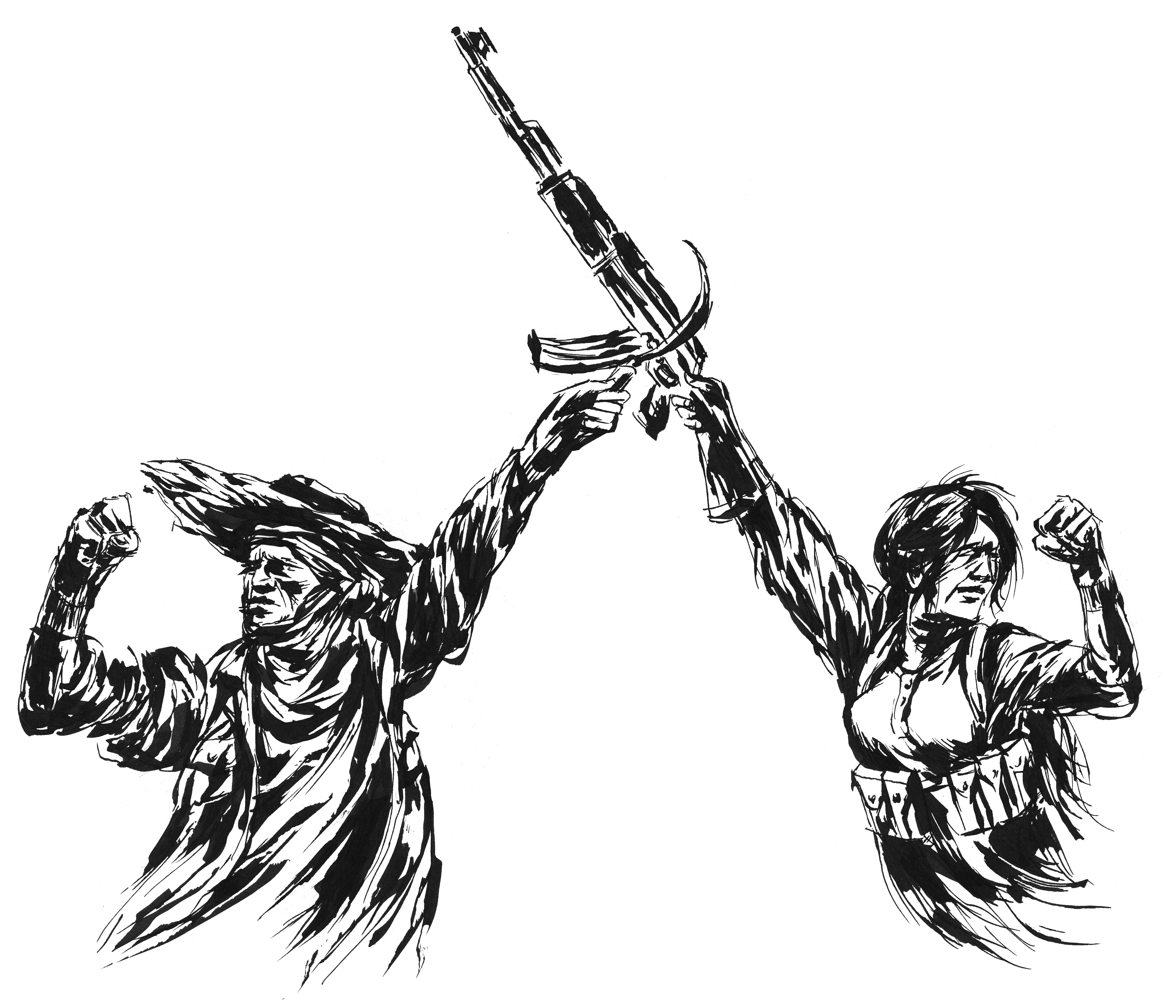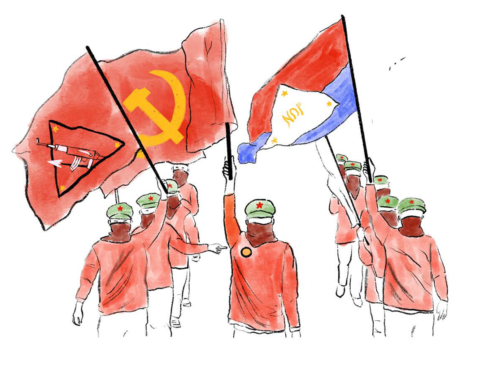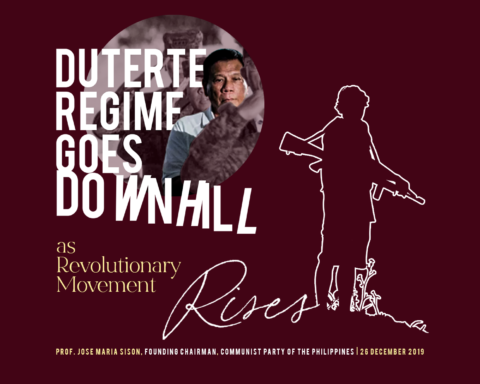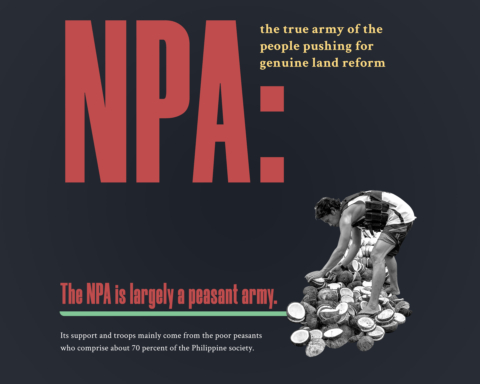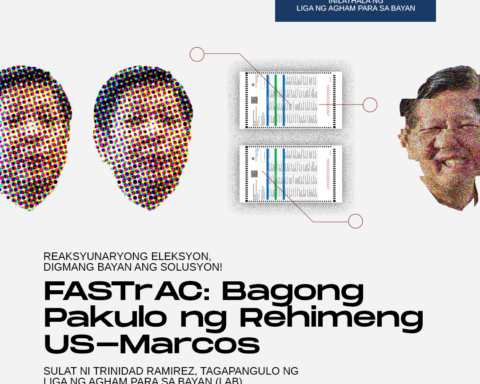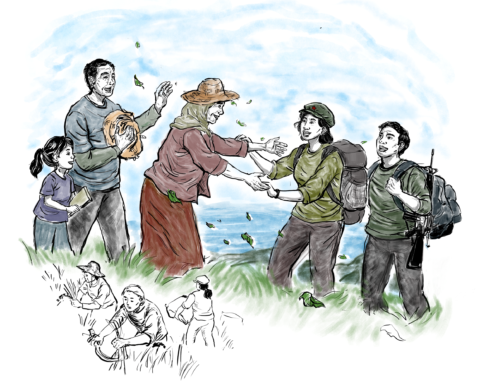by Leon Castro
The new Rodrigo Duterte government has declared it will uplift the lives of peasants with policies and programs aimed at eliminating injustices that have bedeviled the biggest sector of the country. It has promised to provide free irrigation, return the stolen coconut levy funds to the millions of farmer-victims, and offer support services to farmers to improve their harvests.
To demonstrate and give substance to this commitment, President Duterte appointed veteran progressive peasant leader Rafael ‘Ka Paeng’ Mariano, former chairperson of the Kilusang Magbubukid ng Pilipinas, as Department of Agrarian Reform secretary. In turn, Mariano pledged to work for the free distribution of tillable lands to the farmers, stop the widespread ejection of poor farmers who cannot afford to pay land amortization, and push for the legislation of a genuine agrarian reform law.
But, despotic landlords are expected to resist and sabotage these promised reforms. Mariano is their avowed enemy after all. Ergo, meaningful reforms—such as land redistribution, wage increases for farm workers, and utilization of agricultural lands for sustainable food production—will still largely depend on the revolutionary struggle of the peasants to effect genuine changes.
How the PKM developed
The Pambansang Katipunan ng mga Magsasaka (PKM or the National Assembly of Farmers) is the revolutionary organization of peasants and a founding allied organization of the National Democratic Front of the Philippines. It has been fighting for much more than what is now being promised by the Duterte government. PKM is the main organization, and along with the New People’s Army (NPA), forms the revolutionary mass bases in the countryside for the 48-year old national democratic revolution. It unites peasants, mostly poor and middle class farmers and farm workers, and guides them in their fight for agrarian revolution and related reforms. From its ranks have come the most number of Communist Party of the Philippines (CPP) and NPA members.
The PKM started out in Central Luzon and Isabela by helping peasants combat bandits and cattle rustlers, said its spokesperson Andres Agtalon. The peasants early on realized that only by uniting could they fight perennial problems such as unjust division of harvest proceeds, farm wages, land grabbing, usury, and other injustices. They attended assemblies where they listened to discussions of the national situation and the specific situation of the peasantry in which they shared information and experiences. Then they were inspired to form peasant associations. From among the politically advanced members sprung the initial formations that constituted the PKM.
“The NPA pioneered this effort among the peasants and, to this day, it still conducts this vital work in areas where the national democratic revolution is expanding its work,” Agtalon pointed out. In the past five decades, PKM formations have advanced from barangay-level to municipal-level structures. “We now have inter-municipality dialogues among bigger PKM formations in select regions of the country,” he said.
Maximum gains in agrarian revolution
The PKM has benefited from the NPA’s maximum agrarian reform programs, which in turn, have resulted in PKM’s ever-deepening strength and widening reach. About 44,146 hectares of both productive and abandoned farm and pasture lands nationwide have been confiscated by the NPA. These were redistributed to members of the PKM. In Masbate alone, 16,605 hectares of mostly pasture land in 73 barangays were distributed to 5,000 poor peasant families; 12,000 hectares in the Eastern Visayas region; 2,000 hectares in Central Visayas and Negros that are now tilled by 1,000 families. In Mindoro, 7,000 families have acquired 2,541 hectares mostly through land occupation.
“These are just partial reports that the PKM leadership has received from the ground. As the national democratic revolution advances, the PKM shall be able to give more lands to poor peasants nationwide,” Agtalon explained.
“Lands confiscated from landlords and local and foreign agri-businesses are given to beneficiaries free of amortization,” Agtalon added. But the reactionary government, particularly the past administrations, imposed amortization schemes to enable landlords to collect so-called compensation under the failed agrarian reform laws. The PKM campaigns among its members to resist this scheme.
“The most despotic of landlords who employ violence against the farmers’ just demands and actions are punished by the CPP-NPA through their judicial processes,” he said.
Minimum demands program
With the assistance of the NPA, the PKM also implements what it calls “minimum demand” programs. These include wage-increase campaigns for farm workers, reduction or elimination of land rent, just division of harvest proceeds between tenants and landlords, eradication of fraud when their produce are being weighed and priced, increase of farm gate prices, and many others.
The PKM encourages members and beneficiaries to practice cooperative and collective farming to reduce capitalization requirements and maximize yield. When favorable, it forms associations among monocrop farmers, such as banana and pineapple farmers. These efforts increase the farmers’ incomes by eliminating heavy individual borrowing from usurious compradors and farm traders who insist on buying cheap the farmers’ harvests. In many instances, PKM formations are themselves the cooperatives that implement these programs.
Farmers’ support services such as training and workshops on organic farming, construction of mini dams for free irrigation, installation of hydro-electric- solar-wind power turbines for post-harvest drying or processing, and basic farm machineries are also offered by PKM to poor peasants nationwide.
Among farm workers, the PKM forms unions that not only struggle for wage increases but defend their job security as well. Many Nueva Ecija farm workers, for example, recently waged a successful campaign against harvester-combines they call halimaw (monster) that threatened to make their employment redundant.
“Based on collated reports, no less than a million peasant families have benefited from all these campaigns and programs,” Agtalon said.
Courage in face of adversity
Agtalon acknowledged that PKM formations have temporarily suffered setbacks due to vicious state counterinsurgency operations. PKM leaders and members have been assassinated or abducted, tortured and detained while communities underwent forced evacuations or harassments. He cited retired Major General Jovito Palparan’s bloody campaigns in Mindoro, Nueva Ecija and Eastern Visayas as examples. It was during these times that the landlords and compradors tried to reclaim what the farmers had already won, he said.
“But once the farmers have been organized and have experienced the benefits of collective action under the PKM, their revolutionary fervor cannot be extinguished,” Agtalon noted. Once they have weathered the periodic attacks, the farmers rebuild and strive to become even stronger.
PKM’s endurance mirrors the NPA’s ever deepening and widening strength nationwide, as the two are strongly intertwined, Agtalon emphasized. Where there are NPA outfits, there will surely be PKM formations. Where the NPA is strong, the PKM gains strength as well. And vice-versa. Whenever and wherever the NPA declares that it is at its strongest, the same can be said of the PKM, Agtalon added.
“Aside from being the main wellspring of members for the NPA, the PKM also functions as the people’s militia,” Agtalon proudly declared, elaborating: “It assists the NPA in intelligence gathering. It also helps in the educational, cultural and organizational work of the national democratic revolution in a comprehensive manner.” Thus, he concluded: “The PKM is a significant part of the people’s war.”


